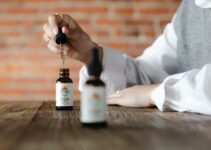As someone who struggles with nighttime anxiety, finding effective ways to ease my symptoms has been crucial. In this article, I'll share 12 nighttime oil doses that have personally helped me manage my anxiety. From understanding the importance of nighttime oil dosing to choosing the right CBD oil, I'll cover everything you need to know to find relief. If you're looking for ways to ease nighttime anxiety, these oil doses may be just what you need.
Key Takeaways
- Engaging in relaxing activities before bed can help calm the mind and alleviate nighttime anxiety.
- Nighttime oil dosing, particularly with CBD oil, has shown promising results in reducing anxiety and improving sleep quality.
- Choosing high-quality CBD oil from reputable brands with transparent extraction methods is crucial for desired effects.
- Adjusting CBD dosage based on factors such as weight, severity of anxiety, and individual response, as well as monitoring and making adjustments as needed, is important for optimizing the benefits of CBD for anxiety management.
Understanding Nighttime Anxiety
Why do I experience heightened anxiety at night? Understanding triggers that lead to nighttime anxiety is crucial. For me, it often stems from the silence and solitude that give my mind the space to wander into worry. Managing symptoms becomes a challenge when the world around me is quiet, and my thoughts seem to amplify. Recognizing these triggers is the first step in finding effective solutions. Engaging in relaxing activities before bed, such as reading or practicing mindfulness, can help calm the mind. Additionally, incorporating nighttime oil dosing into my routine has shown promising results in alleviating nighttime anxiety. By understanding the causes and actively managing symptoms, I can take proactive steps toward a more restful and peaceful night.
Transitioning into the importance of nighttime oil dosing, it has become a crucial component of my nighttime routine.
Importance of Nighttime Oil Dosing
Transitioning into the importance of nighttime oil dosing, incorporating it into my routine has significantly contributed to alleviating my nighttime anxiety. The impact of nighttime oil dosing on sleep quality and anxiety relief can't be overstated. By integrating CBD oil into my nightly routine, I've experienced a notable improvement in the quality of my sleep. It has helped me relax, quieting my mind and reducing the racing thoughts that often accompany anxiety at night. The calming effect has been instrumental in promoting a sense of ease, allowing me to drift into a more restful sleep. Here's a table to illustrate the benefits of nighttime oil dosing:
| Benefits | Description |
|---|---|
| Improved Sleep Quality | CBD oil promotes relaxation, aiding in better sleep. |
| Anxiety Relief | Reduces anxiety symptoms, promoting a sense of calm. |
| Enhanced Well-being | Contributes to an overall sense of well-being. |
When it comes to enhancing sleep and managing anxiety, the significance of nighttime oil dosing cannot be overlooked. Now, let's delve into the crucial aspect of choosing the right CBD oil.
Choosing the Right CBD Oil
As I sought the right CBD oil to incorporate into my nighttime routine, the process involved careful consideration of various factors to ensure its effectiveness for anxiety relief and improved sleep quality. Choosing quality and reputable brands was crucial. I researched extensively to find brands with a strong reputation for purity and potency. Understanding extraction methods was also paramount. CO2 extraction, for instance, was a key criterion as it ensures the retention of beneficial compounds without the use of harsh solvents. Additionally, I prioritized full-spectrum oils, as they contain a wide range of cannabinoids and terpenes, contributing to the entourage effect for enhanced therapeutic benefits. Ultimately, investing time in selecting the right CBD oil from reputable brands with transparent extraction methods proved pivotal in achieving the desired anxiety-relieving and sleep-enhancing effects.
Factors Affecting CBD Dosage
When determining CBD dosage, I consider my weight, the severity of my anxiety, and my body's individual response to the oil. These factors play a crucial role in determining the right dosage for me. Additionally, understanding how CBD interacts with my body is essential in finding the optimal dosage. Factors such as metabolism, genetics, and overall health can also influence the effectiveness of CBD and the required dosage. Furthermore, the quality of my sleep is a key indicator of the appropriate CBD dosage. By monitoring my sleep quality and adjusting the dosage accordingly, I can optimize the benefits of CBD for managing anxiety. It's important to stay mindful of these factors and make adjustments as needed to ensure that I am getting the most out of my CBD oil for anxiety relief.
Recommended Starting Dose
I typically start with a low dose of CBD oil to manage my anxiety, usually around 10-20 milligrams, and then gradually increase as needed based on my body's response. Finding the right dosage is crucial for effectively managing anxiety. It's important to start with a conservative dose and observe how my body reacts before making any adjustments. Nighttime relaxation techniques can also complement CBD oil doses. I find that incorporating practices such as deep breathing, meditation, or gentle yoga before bedtime can enhance the calming effects of CBD oil. This holistic approach helps me achieve a sense of calm and relaxation, which is particularly beneficial for improving sleep quality and reducing nighttime anxiety. By combining CBD oil with these relaxation techniques, I can achieve a peaceful and restful state, promoting better overall well-being.
Adjusting the Dosage for Effectiveness
After assessing my body's response, I adjust the CBD oil dosage as needed to effectively manage my anxiety. It's crucial to find the right balance and optimize the dosage for maximum effectiveness. Here's how I approach adjusting the dosage:
- Start Low: When first experimenting with CBD oil, I begin with a low dose and gradually increase it. This allows me to gauge the effects and find the minimum effective dose.
- Listen to my Body: I pay close attention to how my body reacts to different dosages. If I notice any adverse effects or insufficient relief, I make adjustments accordingly.
- Consult with a Professional: It's essential to consult with a healthcare professional, especially when making significant adjustments to the dosage. Their expertise can provide valuable insights and guidance.
- Track and Monitor: I maintain a dosage journal to track the effects of different doses over time. This helps me make informed decisions about adjusting the dosage to achieve optimal results.
Timing Your Nighttime Dose
Having observed the effects of different dosages, I find that taking a nighttime dose of CBD oil before bed provides the most effective relief for my anxiety. Incorporating CBD oil into my nighttime routine has become a crucial part of my relaxation techniques. By taking it before bed, I allow the calming properties of the oil to gradually take effect, helping me unwind and prepare for a restful night's sleep. This timing also ensures that I wake up feeling refreshed, without any lingering anxiety from the previous day. Additionally, it sets a positive tone for the next day, as I often wake up feeling more balanced and ready to face daily challenges. Understanding the impact of timing on the effectiveness of CBD oil has been instrumental in managing my anxiety.
As I continue to explore the benefits of CBD oil, monitoring the effects has become an essential part of my routine.
Monitoring the Effects
Throughout my experience with CBD oil, I have found it essential to regularly monitor the effects it has on my anxiety levels. Measuring progress and tracking changes has been crucial in understanding how the nighttime oil doses are impacting my overall well-being. Here are some key points to consider when monitoring the effects of CBD oil on anxiety:
- Keep a journal to record daily anxiety levels and any noticeable changes after taking the oil.
- Pay attention to physical symptoms such as muscle tension or restlessness, and note any improvements.
- Use established anxiety assessment tools to quantitatively measure changes in anxiety levels over time.
- Discuss your observations with a healthcare professional to gain insights into the effectiveness of the oil and make any necessary adjustments to your dosage or routine.
Potential Side Effects to Note
Before starting any new supplement, it's essential to monitor for adverse reactions. Everyone's tolerance levels vary, so it's crucial to consider individual differences. If you have any concerns or questions, consulting a healthcare professional is always the best course of action.
Monitor for Adverse Reactions
The article will examine potential side effects to monitor for when using nighttime oil doses to ease anxiety. It's important to be aware of potential adverse reactions when incorporating nighttime oil doses into anxiety management strategies. Here are some side effects to monitor for:
- Gastrointestinal disturbances such as nausea or stomach discomfort
- Drowsiness or dizziness, especially the morning after
- Allergic reactions such as rash or difficulty breathing
- Interactions with other medications leading to unexpected effects
Monitoring for these potential side effects is crucial for effective adverse reaction management and ensuring the safety and well-being of individuals using nighttime oil doses for anxiety relief. As we consider individual tolerance levels, it's essential to be vigilant for these potential side effects and adjust the dosage or seek medical advice if necessary.
Consider Individual Tolerance Levels
Considering individual tolerance levels, it's essential to monitor for potential side effects when using nighttime oil doses to ease anxiety. Each person's tolerance to oil doses can vary, so it's important to start with a low dose and gradually increase it to find the right balance. Pay close attention to any adverse reactions, such as dizziness, drowsiness, or gastrointestinal discomfort. If these side effects occur, it's crucial to consider individual tolerance and adjust the dosage accordingly. Consulting with a healthcare professional can provide valuable guidance in determining the appropriate dosage for specific tolerance levels. By carefully monitoring individual responses and making necessary dosage adjustments, the potential for side effects can be minimized, allowing for a more personalized and effective approach to managing anxiety with nighttime oil doses.
Consult Healthcare Professional
Monitoring for potential side effects when using nighttime oil doses to ease anxiety is crucial, and I recommend consulting a healthcare professional to discuss any adverse reactions and make necessary dosage adjustments. Here are some important factors to consider when seeking healthcare guidance and managing the dosage:
- Regular check-ins with a healthcare professional can help monitor any potential side effects and ensure the nighttime oil doses are effectively managing anxiety.
- Healthcare professionals can provide personalized advice based on individual health conditions and medication interactions.
- Any unexpected symptoms or changes in health should be reported to the healthcare professional promptly for assessment and guidance.
- Dosage management is essential, and healthcare professionals can assist in making any necessary adjustments to ensure the nighttime oil doses are safe and effective.
Consulting a healthcare professional is essential for personalized guidance and support in managing nighttime oil doses to ease anxiety. Now, let's delve into the importance of seeking professional advice for optimal anxiety management.
Consulting a Healthcare Professional
I always recommend seeking advice from a healthcare professional before starting any new nighttime oil doses for anxiety. When it comes to self-care strategies and mental health support, consulting a healthcare professional is crucial. They can provide personalized guidance based on your specific needs and medical history. A healthcare professional can help determine if nighttime oil doses are suitable for you, considering factors such as existing medications, allergies, and any underlying health conditions. Additionally, they can offer alternative or complementary approaches to managing anxiety, ensuring a comprehensive and safe treatment plan. Seeking their expertise ensures that you receive the most effective and tailored support for your mental well-being. It's important to prioritize your health and make informed decisions, and consulting a healthcare professional is an essential step in that process.
Trying Different Oil Formulations
I've found that exploring different oil formulations can greatly impact the effectiveness of nighttime doses for anxiety. The benefits of oil blends can vary, so it's important to find the best formulation that suits your needs. By trying different formulations, individuals can find the most effective option for easing their anxiety symptoms.
Oil Blend Benefits
Exploring different oil formulations for nighttime anxiety relief has revealed promising benefits. I've experimented with various oil blend recipes and combined them with relaxation techniques to maximize their effectiveness. Here are the key benefits I've observed:
- Enhanced Relaxation: Certain oil blends have a synergistic effect, promoting deeper relaxation compared to single oils.
- Improved Sleep Quality: By using specific oil combinations, I've experienced more restful and undisturbed sleep.
- Reduced Anxiety Symptoms: The right oil formulation has significantly alleviated my nighttime anxiety, allowing for a calmer mind.
- Personalized Aromatherapy: Tailoring oil blends to my preferences has made the nighttime routine more enjoyable and effective.
These discoveries have motivated me to continue experimenting in search of the best formulation for anxiety relief.
Finding Best Formulation
After testing various oil formulations, I am now focused on identifying the most effective blend for easing nighttime anxiety. Finding the right blend is crucial for achieving optimal anxiety relief and improving sleep quality. I've been experimenting with different combinations of essential oils, considering dosage considerations to ensure safety and effectiveness. It's essential to strike the right balance to maximize the anxiety-relieving properties while promoting a restful night's sleep. By carefully adjusting the formulation and dosage, I aim to create a blend that not only alleviates anxiety but also enhances sleep quality. Each variation is meticulously assessed for its impact on anxiety levels and its ability to promote a sense of calm conducive to a good night's sleep.
Incorporating Nighttime Self-Care Practices
Incorporating nighttime self-care practices involves establishing a calming bedtime routine. This can significantly impact overall well-being, especially when dealing with anxiety. Here are some stress relief techniques to incorporate into your nighttime routine:
- Mindfulness Meditation: Engaging in a short meditation session before bed can help calm the mind and relax the body, promoting better sleep.
- Aromatherapy: Using essential oils like lavender or chamomile in a diffuser or as a pillow spray can create a soothing atmosphere conducive to relaxation.
- Warm Bath or Shower: Taking a warm bath or shower before bed can help ease muscle tension and promote a sense of tranquility.
- Reading or Journaling: Engaging in quiet activities like reading a book or jotting down thoughts in a journal can help clear the mind and prepare it for rest.
Incorporating these practices into your nighttime routine can foster a sense of calm and promote better sleep, ultimately aiding in anxiety relief.
Frequently Asked Questions
Can Nighttime Oil Doses for Anxiety Be Combined With Other Medications or Supplements?
Combining medications and supplements with nighttime oil doses requires caution. Always consult a healthcare professional before mixing different treatments. I've found that discussing potential interactions and benefits, like exercise, with my doctor is crucial.
Are There Specific Types of Anxiety or Sleep Disorders That Nighttime Oil Doses May Not Be Effective For?
Some types of anxiety, like panic disorder, may not respond well to nighttime oil doses. Sleep disorders such as sleep apnea could also be less affected. Combining therapies and long-term effects must be carefully considered.
How Long Does It Typically Take to Notice the Effects of Nighttime Oil Doses for Anxiety?
It typically takes me a few days to notice the effects of nighttime oil doses for anxiety. The dosage timing and effectiveness duration vary for each person. I haven't experienced any significant side effects, but individual differences may occur.
Are There Any Potential Interactions Between CBD Oil and Common Nighttime Activities, Such as Drinking Alcohol or Using Electronic Devices?
I never thought I'd have to worry about potential interactions between CBD oil and common nighttime activities, like drinking alcohol or using electronic devices. But it's important to be mindful of potential side effects and recommended dosages. Interactions with medication and long-term effects also need consideration.
Can Nighttime Oil Doses for Anxiety Be Used in Conjunction With Therapy or Other Mental Health Treatments?
Yes, nighttime oil doses for anxiety can be used in conjunction with therapy or other mental health treatments. I find integrating therapy with mindfulness techniques helps manage anxiety effectively.




